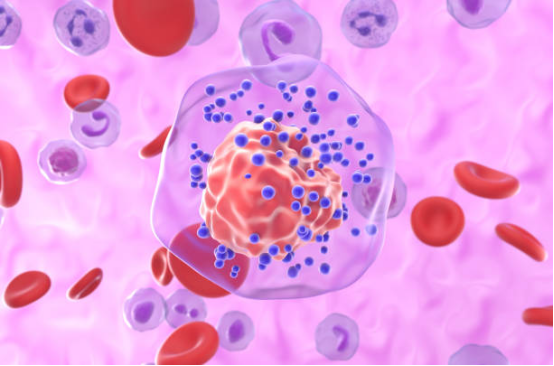New Horizons in the Treatment of Triple-Negative Breast Cancer: A New Era of Hope
Triple-negative breast cancer (TNBC) is one of the most aggressive and difficult-to-treat forms of breast cancer, but recent advances in immunotherapy and targeted treatments have opened up new possibilities for improving patient outcomes and managing this challenging disease.
Triple-negative breast cancer (TNBC) is one of the most aggressive and difficult-to-treat forms of breast cancer, but recent advances in immunotherapy and targeted treatments have opened up new possibilities for improving patient outcomes and managing this challenging disease.

What Is Triple-Negative Breast Cancer?
Triple-negative breast cancer (TNBC) accounts for roughly 15% of all breast cancer cases. Unlike other subtypes, TNBC lacks estrogen, progesterone, and HER2 receptors, which makes it unresponsive to traditional hormone-based treatments or HER2-targeted therapies. As a result, TNBC has historically been harder to treat, but recent breakthroughs in immunotherapy are offering new hope for patients.
Immunotherapy: A Breakthrough in TNBC Treatment
Immunotherapy has emerged as a powerful option for treating TNBC, particularly for patients who have not seen success with chemotherapy or radiation. This treatment works by harnessing the body’s immune system to specifically target and destroy cancer cells, while sparing healthy cells. Unlike conventional therapies, which often damage both cancerous and healthy tissues, immunotherapy provides a more precise and less toxic treatment option.
Promising Immunotherapy Drugs for TNBC
Several immunotherapy drugs have shown encouraging results in treating TNBC. Pembrolizumab (Keytruda) is a key drug in this field, working by blocking the PD-1 pathway, which helps the immune system detect and attack cancer cells. Atezolizumab (Tecentriq) is another promising drug, particularly effective in combination with chemotherapy, as shown in clinical trials.
Early Success and Clinical Evidence
Recent clinical trials have demonstrated that immunotherapy can significantly improve survival rates and reduce the risk of recurrence in TNBC patients. These treatments have the advantage of fewer side effects compared to conventional chemotherapy, which is often harsh on the body. The combination of immunotherapy with chemotherapy has shown potential to further improve patient outcomes, marking a significant step forward in TNBC management.
Ongoing Challenges and Future Directions
Despite the progress, challenges remain. One of the major obstacles is identifying which patients will respond to immunotherapy. Current research is focused on developing better biomarkers to predict responses, as well as creating more potent immunotherapy drugs and combination therapies to reduce resistance and improve efficacy.
Conclusion
Immunotherapy is revolutionizing the treatment of triple-negative breast cancer, offering fresh hope to patients. With drugs like pembrolizumab and atezolizumab showing promising results, and ongoing research bringing us closer to new breakthroughs, the future of TNBC treatment looks brighter. As our understanding of immunotherapy deepens, the landscape of TNBC treatment continues to evolve, raising optimism for better management and potential cures in the near future.